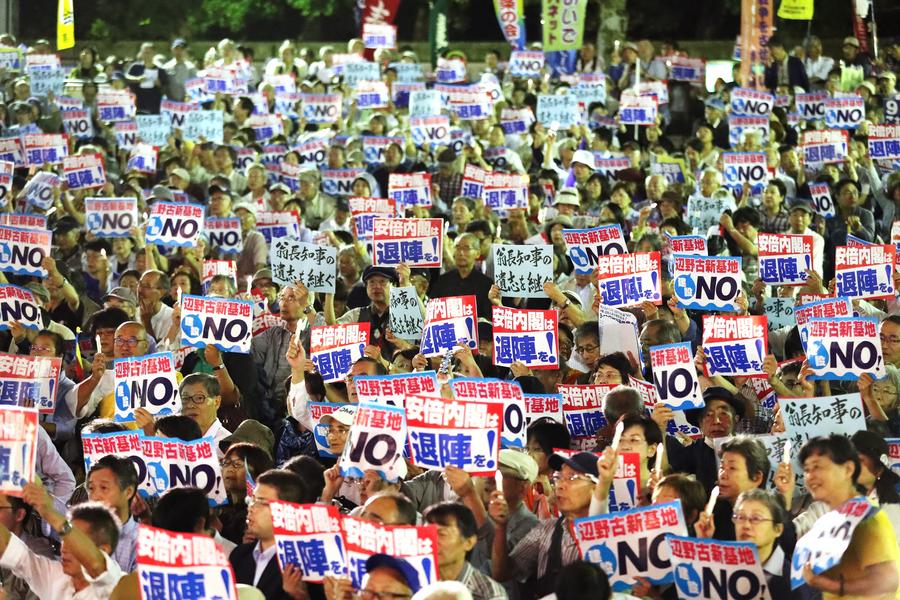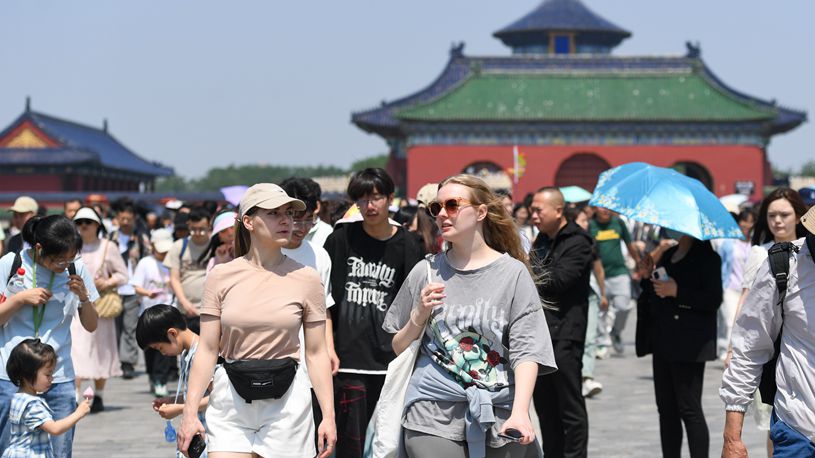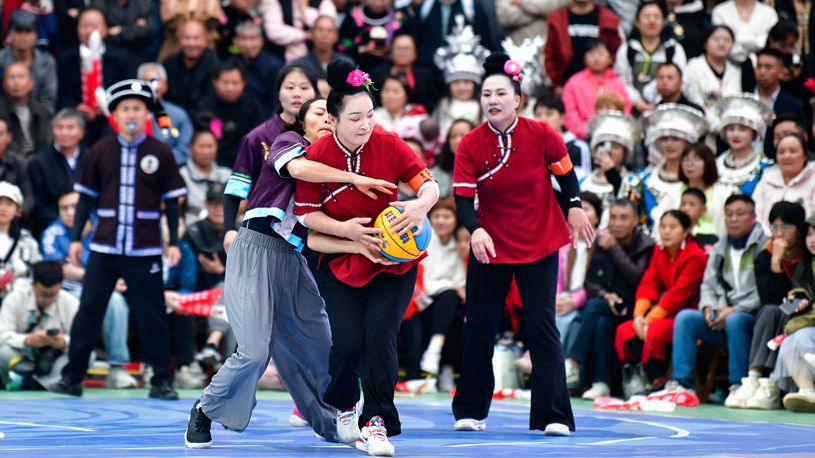Right-wing politicians, from Abe to Kishida, have sought to transform Japan into a "normal country" capable of possessing military power. However, due to the challenges involved in completely revising the constitution, they have adopted a gradual approach by bypassing the parliament and transferring the responsibility of revising or formulating security-related laws and regulations to the government.
TOKYO, May 3 (Xinhua) -- Friday commemorates Constitution Memorial Day in Japan, a day dedicated to honoring the pacifist constitution enacted in 1947, symbolizing Japan's commitment to a post-war era of peace. The country, however, now finds itself increasingly at odds with the principles of its war-renouncing constitution.
Japan is now actively seeking to circumvent its constitutional restraints, steadily bolstering its defense budget and expanding its offensive military capabilities, thus veering further away from its once cherished commitment to peace.
"DEMISE OF ARTICLE 9"
The cornerstone of Japan's pacifist constitution is Article 9, which renounces the nation's right to engage in war or to resort to military force to resolve international conflicts. For decades, this article has been a fundamental constraint on Japan's military endeavors.
Masahiro Sakata, former director-general of the Cabinet Legislation Bureau and a staunch advocate for the preservation of the pacifist constitution, noted that Japan's military is essentially structured as a self-defense force and not offensive in nature, citing Article 9, which stipulates that "land, sea, and air forces, as well as other war potential, will never be maintained."
According to Sakata, the principle of "self-defense" rests upon two pillars. The notion of "self" restricts Japan's Self-Defense Forces (SDF) to domestic operations and prohibits overseas military ventures, while the concept of "defense" mandates the force's exclusive focus on defensive capabilities, devoid of offensive weaponry or aggressive intentions.
After World War II, however, Japan's right-wing forces harbored aspirations of reclaiming the nation's status as a formidable political and military power. The ruling Liberal Democratic Party has persistently endeavored to circumvent the limitations imposed by Article 9, incrementally eroding its constraints.
Sakata highlighted the Shinzo Abe government's 2015 decision to lift the ban on exercising collective self-defense as a pivotal moment. This decision effectively nullified the constitutional restrictions on the SDF and permitted engagements beyond Japan's borders, thereby undermining the essence of Article 9.
At the end of 2022, the Fumio Kishida government, despite widespread opposition, forcefully updated three security and defense-related documents, including the National Security Strategy.
These initiatives aim to acquire "enemy base strike capabilities," dismantle the shackles of the peace constitution, and challenge the nation's "exclusively defense-oriented" principles, heralding a profound transformation in Japan's post-war security stance.
Sakata grimly acknowledged that the pursuit of "enemy base strike capabilities" blatantly contradicts the constitutional mandate restricting the possession of offensive weaponry by the SDF, which means the demise of the second pillar supporting Article 9. "The Article 9 is dead," he said.
LIFTING ARMS EXPORT BAN
In a significant policy shift for pacifist Japan, in December last year and March this year, the Kishida government twice revised the Three Principles on Transfer of Defense Equipment and Technology and their implementation guidelines, allowing for the export of finished weapons such as fighter jets. The revisions threw open the door for direct exports of lethal weapons from Japan to other countries.
"This is a blatant violation of the pacifist constitution and will only automatically draw Japan into war and conflict," said Atsushi Koketsu, emeritus professor at Yamaguchi University of Japan.
Sayo Saruta, director of the Japanese think tank New Diplomacy Initiative, said lifting the ban on lethal weapon exports will significantly boost Japan's defense industry. Japan, engaged in an arms race, would be unable to stop its international arms sales.
Japanese newspaper Tokyo Shimbun reporter Atsushi Kawada said that in the two and a half years since he began covering the Japanese Ministry of Defense news, he has lost count of how many times he has written about "major shifts" in Japan's security policy.
Japan, once rooted in "pacifism" and an "exclusively defense-oriented policy," has completely transformed itself into a "war-capable country" after many "major shifts," Kawada said. Lifting the export ban on fighter jets runs counter to "pacifism" and will indeed "sow the seeds of calamity" for the country's future, he said.
DANGEROUS SLIPPERY SLOPE
Right-wing politicians, from Abe to Kishida, have sought to transform Japan into a "normal country" capable of possessing military power. However, due to the challenges involved in completely revising the constitution, they have adopted a gradual approach by bypassing the parliament and transferring the responsibility of revising or formulating security-related laws and regulations to the government.
The constitution is the benchmark that should be referred to when formulating other laws, and security-related laws enacted in the absence of the constitution lack legitimacy, Miho Aoi, professor of law at Gakushuin University in Japan, said in a recent interview with Japanese media.
In 2013, the Abe administration established the National Security Council and began letting the government take the lead in formulating security policies. Now, it is increasingly worrying that the government is imposing its own decisions on national security policy without involving the parliament in discussion, Aoi said.

To expand its military power, the Kishida government has sought military alliances and strengthened cooperation with the United States, the Philippines, NATO and others, leading to camp confrontation.
Analysts said this "new militarism" in Japan makes the Japanese people uneasy and threatens regional peace. Koketsu noted that the series of moves suggests Japan is on a dangerous path.
The security-related laws betray Article 9 of the constitution and are once again pushing Japan down the slippery slope of becoming a "military power" and a "war state," Tokyo Shimbun reported.■










